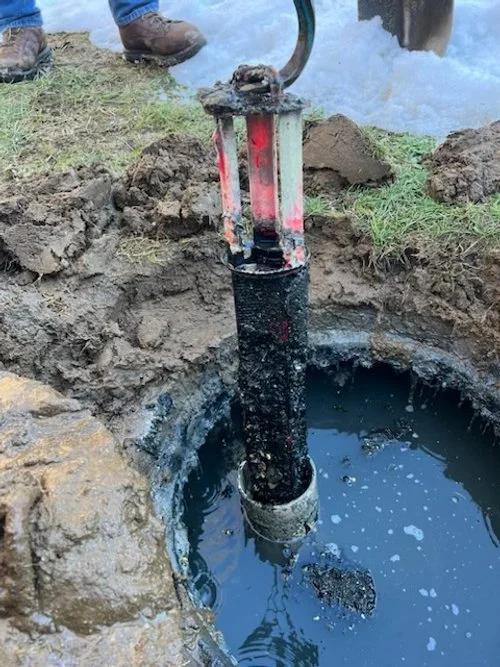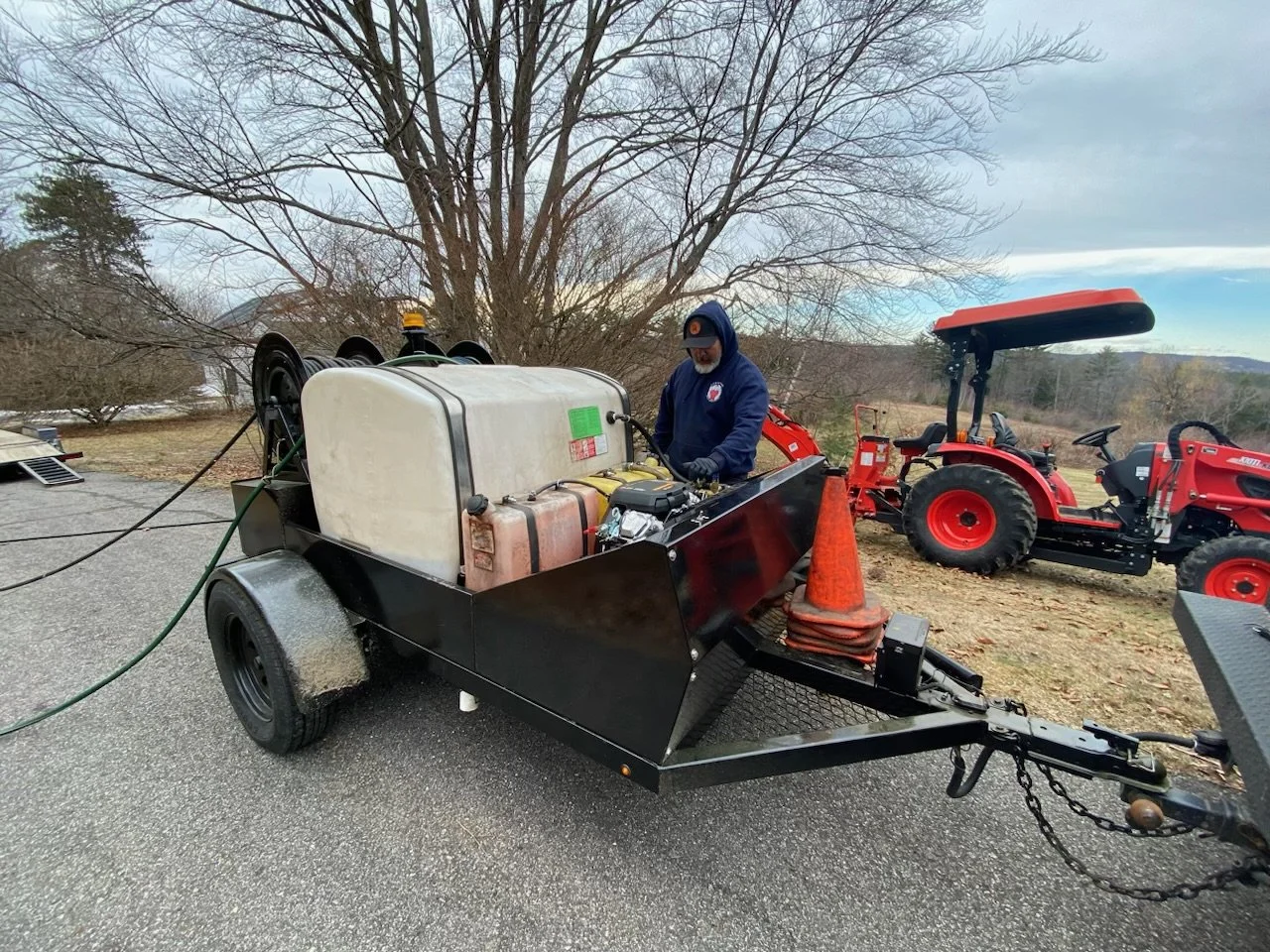HOW DOES A SEPTIC SYSTEM WORK?
All water runs out of your house from one main drainage pipe into a septic tank. The septic tank is a buried, water-tight container usually made of concrete, fiberglass, or polyethylene. Its job is to hold the wastewater long enough to allow solids to settle down to the bottom forming sludge, while the oil and grease floats to the top and also known as the scum layer. Compartments and a T-shaped outlet baffle prevent the sludge and scum from leaving the tank and traveling into the drain field. The liquid wastewater then exits the tank into the drain field. The leaching area is a shallow, covered, excavation made in unsaturated soil. Pretreated wastewater is discharged through piping onto porous surfaces that allow wastewater to filter through the soil. The soil accepts, treats, and disperses wastewater as it soaks through the soil, ultimately discharging into the groundwater. If the drain field is overloaded with too much liquid, it will flood, causing sewage to flow to the ground surface or create backups in toilets and sinks. Finally, the wastewater soaks into the soil, naturally removing harmful bacteria, viruses and nutrients.
Do’s.
Have your system inspected every three years by a licensed inspector
Have the tank pumped every two to three years
Eliminate or limit the use of a garbage disposal
Properly dispose of coffee grounds and food
Put grease in a container to harden before discarding in the trash
Stagger the use of water-generating appliances
Become more water efficient
If your system is equipped with a filter -the filter should be cleaned once a year
Don’ts.
Pour cooking grease or oil down the sink or toilet
Rinse coffee grounds into the sink
Pour household chemicals down the sink or toilet
Flush non-degradable products or chemicals, such as feminine products, wipes, condoms, dental floss, diapers, and cue tips
Cat litter, paper towel and FLUSHABLE wipes.
Plant trees too close to the septic system
Do not use your dishwasher, shower, washing machine, and toilet at the same time. All that extra water can strain your system.
Park or drive on your leach field as the weight can damage the system. Nothing heavier than a riding lawn mower should be on your system.

